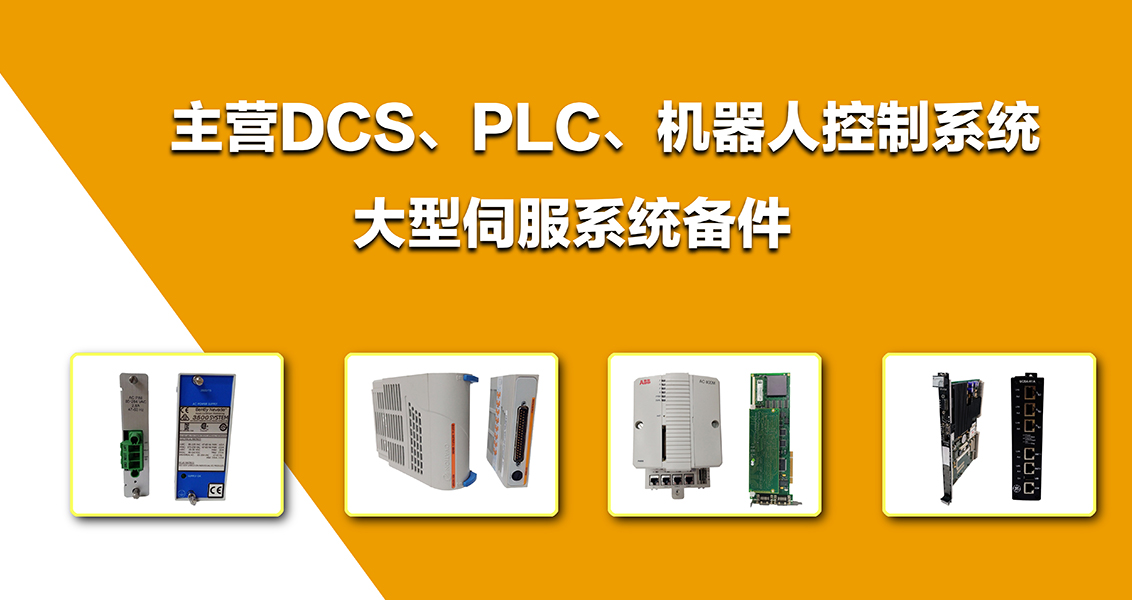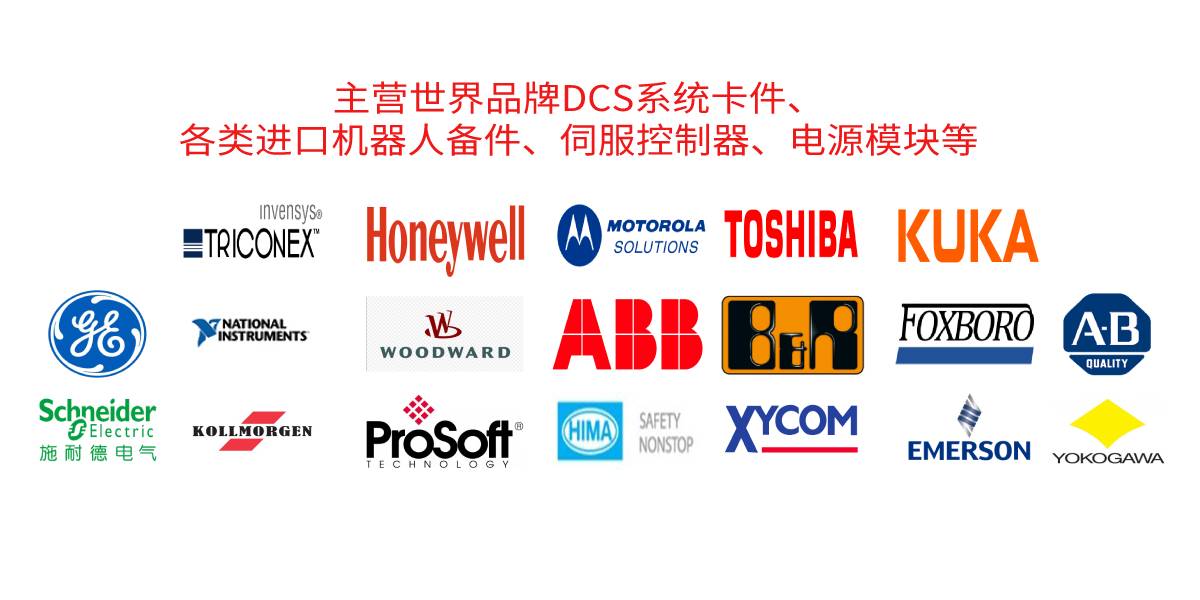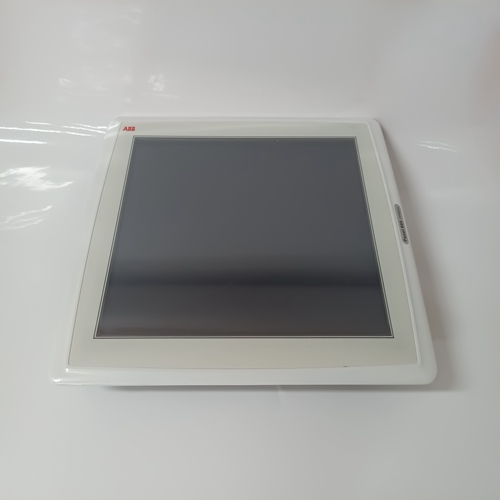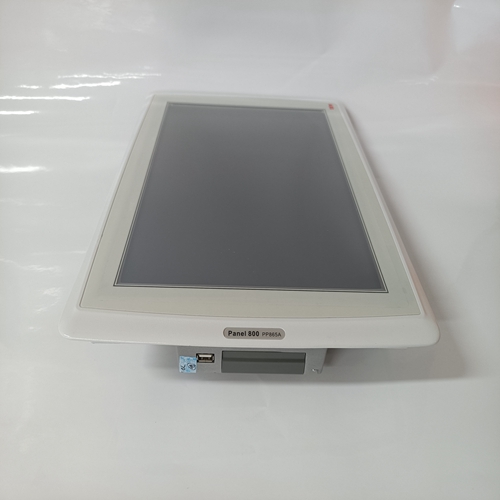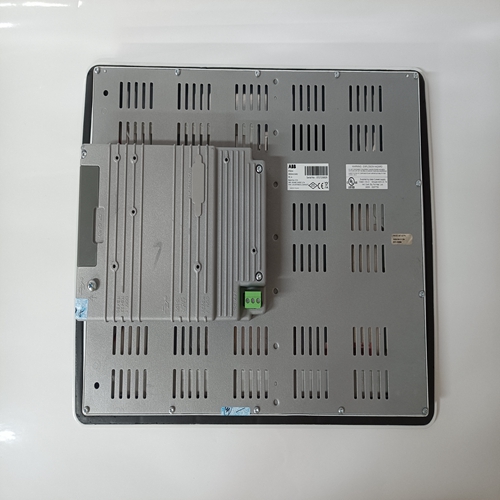公司主营产品图展示
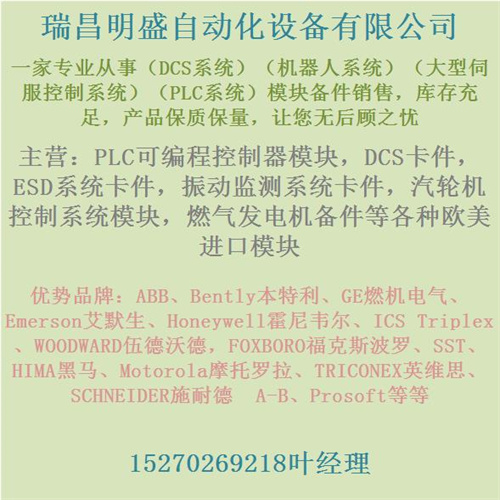
产品优势
1:国外专业的供货渠道,具有价格优势
2:产品质量保证,让您售后无忧
3:全国快递包邮
产品详情介绍
3BSE042236R2触摸屏显示器
IDE设备和软盘驱动器
XVME-660主IDE和软盘驱动器信号通过P2连接器路由,提供了连接两个IDE设备和一个外部设备的简化方法软盘驱动器。辅助IDE主信号支持compact flash站点和不支持辅助IDE从属信号。
当与XVME-977或XVME/979大容量存储模块一起使用时,IDE设备和软盘驱动器不需要位于处理器旁边。使用提供的六英寸带状电缆(连接XVME板的J2 VME背板连接器),XVME-977或XVME-979可安装在离VME背板上的XVME-660。这允许在配置VMEbus卡笼。
对于需要VMEbus机箱外部大容量存储的应用程序,XVME-973/1驱动适配器模块插入VMEbus J2接头。本模块提供:IDE和软盘信号的行业标准连接。一个软盘驱动器可以是:
连接到XVME-973/1。此驱动器可能为2.88 MB、1.44 MB、1.2 MB或大小为720KB、360KB。有关XVME-973/1的更多信息,请参阅第5章。注意IDE控制器支持增强的PIO模式,这减少了向硬盘传输16位数据的周期时间。与您的驱动器手册,查看您使用的驱动器是否支持这些模式。这个PIO模式越高,循环时间越短。作为IDE电缆长度循环时间的减少会导致不稳定的操作。因此,保持IDE电缆尽可能短符合您的最佳利益。可以在BIOS设置中选择PIO模式(参见第36页)。如果驱动器:支持自动ID命令。如果遇到问题,请更改将模式转换为标准模式。
小心电缆总长度不得超过18英寸。此外,如果两个驱动器连接时,它们之间的距离不得超过6英寸。
小型闪存站点
主板上的闪存插座仅支持I型闪存卡。
紧凑型闪存作为主设备驻留在辅助IDE端口上司机是必需的。如果在BIOS引导菜单中配置,则可以从小型闪存驱动器引导XVME-660(将可引导插件卡移到列表中较高的位置)。
VMEbus接口
XVME-660使用PCI本地总线与VMEbus接口。VMEbus接口支持与VMEbus之间的全DMA、用于发布写入的集成FIFO、块模式传输和读-修改-写操作。该接口包含一个主机和八个从映像,可在多种模式下编程,以允许VMEbus:映射到XVME-660本地存储器。这使得配置VMEbus变得容易保护模式和实模式程序中的资源XVME-660还包含板载硬件字节交换(见表1-2)。
IDE Devices and Floppy Drives
The XVME-660 primary IDE and floppy drive signals are routed through the P2 connector, providing a simplified method of connecting up to two IDE devices and one external
floppy drive. The secondary IDE master signals support the compact flash site and the
secondary IDE slave signals are not supported.
When used with the XVME-977 or the XVME-979 mass storage modules, the IDE devices and floppy drives do not need to be located next to the processor. Using the supplied six-inch ribbon cable (which connects the XVME boards' J2 VME backplane connectors), the XVME-977 or the XVME-979 can be installed up to six slots away from the
XVME-660 on the VME backplane. This allows greater flexibility in configuring the
VMEbus card cage.
For applications that require mass storage outside the VMEbus chassis, the XVME-973/1
drive adapter module plugs onto the VMEbus J2 connector. This module provides
industry standard connections for IDE and floppy signals. One floppy drive can be
connected to the XVME-973/1. This drive may be 2.88 MB, 1.44 MB, 1.2 MB, or
720 KB, 360 KB in size. For more information on the XVME-973/1, refer to Chapter 5. Caution
The IDE controller supports enhanced PIO modes, which reduce the cycle times for 16-bit data transfers to the hard drive. Check with your
drive manual to see if the drive you are using supports these modes. The
higher the PIO mode, the shorter the cycle time. As the IDE cable length
increases, this reduced cycle time can lead to erratic operation. As a result, it is in your best interest to keep the IDE cable as short as possible.
The PIO modes can be selected in the BIOS setup (see p. 36). The Autoconfiguration will attempt to classify the connected drive if the drive
supports the auto ID command. If you experience problems, change the
Transfer Mode to Standard.
Caution
The total cable length must not exceed 18 inches. Also, if two drives are
connected, they must be no more than six inches apart.
Compact Flash Site
The compact flash socket on the mainboard will support type I Compact Flash cards only.
The compact flash resides as a master on the secondary IDE port. There are no unique
drivers required. The XVME-660 can be booted from the compact flash drive if configured in the BIOS Boot menu (move Bootable Add-in Cards higher in the list).
VMEbus Interface
The XVME-660 uses the PCI local bus to interface to the VMEbus. The VMEbus interface supports full DMA to and from the VMEbus, integral FIFOs for posted writes, block
mode transfers, and read-modify-write operations. The interface contains one master and
eight slave images that can be programmed in a variety of modes to allow the VMEbus to
be mapped into the XVME-660 local memory. This makes it easy to configure VMEbus
resources in protected and real mode programs The XVME-660 also incorporates onboard hardware byte-swapping (see Table 1-2).




